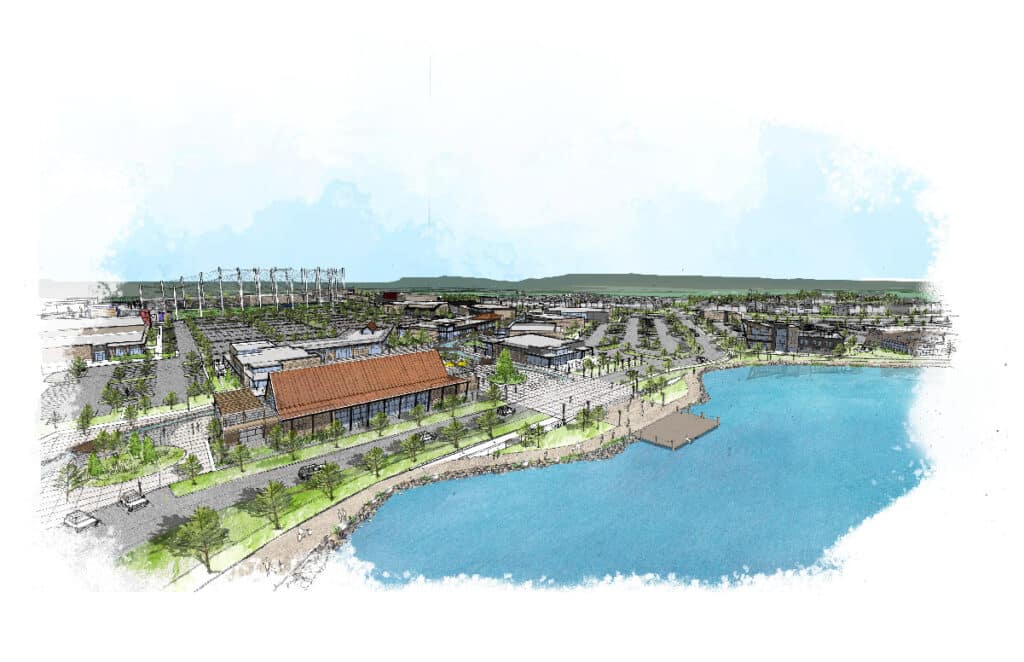Wellington planners delay decision on asphalt plant
WELLINGTON — Saying it needed to gather more information, the Wellington Planning Commission on Monday delayed until June 5 final consideration of a site-plan proposal for an asphalt-mixing plant near a community park, an elementary school and the growing Buffalo Creek neighborhood.
Connell Resources LLC is seeking to move its existing asphalt batch plant from a site near the proposed Ladera mixed-use development in Timnath, where it has operated for more than 30 years, to a 35.56-acre site along Larimer County Road 66 and the BNSF Railway in Wellington that has been zoned Heavy Industrial for 23 years, before many of the nearby homes were built. However, scores of nearby residents have protested the move, citing health concerns about such a plant’s emissions as well as stormwater issues and increased truck traffic, which Connell Resources president John Warren predicted would be 50 to 60 truck trips per day — and the effect on their property values.
The footprint of the proposed site would be similar to that of the Timnath plant except that there would be no gravel pit and that a height variance was approved last October that would allow a 70-foot silo.
A decision had also been deferred from the commission’s March 6 meeting, at which Warren said Connell Resources had chosen the Wellington site because Larimer and Weld counties no longer permit industrial-use facilities in unincorporated areas and because a site that had been considered in the town of Carr, about 18 miles to the northeast, had a windier weather environment. Also, Warren said then, asphalt — at a temperature of up to 320 degrees — is perishable, “and the farther from its end user, the more difficult it gets.”
In an email to BizWest on Tuesday, Warren said Connell Resources also is requesting more time from the Planning Commission “to ensure we’ve done our due diligence, as we are sensitive to those who have questions. … The additional time we requested is to allow our consultants to finalize their environmental studies and allow town staff reasonable review time.”
Warren said Connell Resources is approaching the end of the life of its gravel-pit resources at the Timnath site, and that both Wellington’s comprehensive plan, updated in 2021, and its land-use code, updated last year, list asphalt plants as a designated use or use by right.
“The site is also near critical infrastructure such as an I-25 interchange that allows us to direct all our truck traffic away from residential areas, schools and the Wellington Town Center,” Warren wrote.
He said asphalt-mixing plants “are recognized by the Environmental Protection Agency as only a minor source of air pollution under the federal Clean Air Act. Our plant is well regulated at federal, state and local levels. We have between four to seven active environmental state permits, depending on our current activities, to which we are required to comply with and monitor daily to operate our asphalt mixing plant. These permits regulate everything from air emissions to stormwater runoff.”
The plant also is subject to regular inspections by the Larimer County Department of Public Health and the Colorado Department of Public Health and Environment, he wrote.
Connell Resources has safely operated its existing plant in Timnath by using emissions-control systems that capture and remove fugitive emissions such as particulates (dust) and volatile organic compounds “at various points throughout the asphalt mixing and load-out process,” Warren wrote, and “we continually implement new technologies, such as warm mix asphalt, that reduce our asphalt mixing temperatures, thereby reducing our fuel use and our emissions. Our plant is fueled by natural gas, which is the same fuel that heats most homes and businesses.
“Along with our constant internal monitoring, we use a variety of control equipment and best practices to minimize air emissions. We are required to submit operation and maintenance plans to CDPHE to document and ensure that our controls are working in the most efficient manner.”
Warren said additional environmental analysis will be provided in Wellington. “We have voluntarily committed to three environmental studies and risk assessments to evaluate our impact on air quality, noise and wildlife at the Wellington site,” he wrote. “These studies are being done to ensure that we will be compliant with all federal, state and local regulations and ordinances.
“Although we pose no threat to groundwater and groundwater monitoring is not required,” Warren wrote, “we have also voluntarily agreed to monitor groundwater at the site for the life of our activities to ensure that we do not have any effect on local groundwater.”
As an industry over the last 30 to 40 years, he wrote, production has increased 250% and overall emissions have decreased by 97%.
Asphalt mixing plants “do not create a community health hazard” and “do not ‘produce’ nor ‘curate’ toxic chemicals,” Warren wrote.
However, planning commission members at Monday’s meeting said they had received more than 180 public comments opposing the plant’s relocation, and expressed frustration with some commenters’ contention that they were giving a rubber stamp to the developers because no final rulings had been made.
Under the current plan, material storage would be 800 feet from the nearby Buffalo Creek neighborhood, while the asphalt mixing plant itself would be 2,800 feet away.
Source: BizWest




